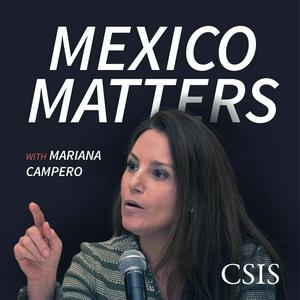Note: This episode was recorded on February 17th, 2026, before the death of Mexican cartel leader “El Mencho.”
In this episode, Mariana speaks with Jorge Castaneda, a Mexican politician and academic who served as Secretary of State from 2000 to 2003.
They discuss President Trump’s high-pressure stance toward Mexico and how President Sheinbaum has thus far been able to navigate his demands while avoiding a face-to-face meeting. They also explore the on-the-ground realities behind President Trump’s claims that Mexican trafficking organizations are allied with the government, the recent shifts in Mexico's security strategy, and the risks of a unilateral U.S. incursion.
Finally, the conversation turns to the broader region, examining the likelihood of regime change in Cuba, the evolving situation in Venezuela, and the anticipated pushback to the new "Don-Roe Doctrine" in South America.
As these nations increasingly depend on China as a primary market for commodities and a major source of foreign direct investment, the tension between U.S. hemispheric policy and global economic realities has never been higher.


